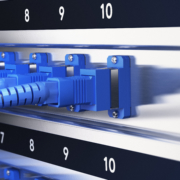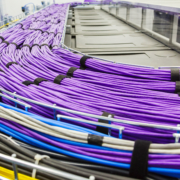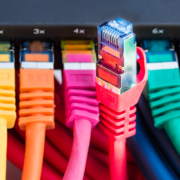Structured Cabling Test
What is Data Cabling Testing?
Structured cabling tests ensure that there are no damages or faults within your cabling infrastructure. Furthermore, It verifies that all equipment is connected to the correct ports, patch cables are correctly labelled, everything is grounded properly and meets all safety, performance, and regulatory standards. In addition, data cabling testing helps ensure that your network will be reliable, secure, and function as it should.
What are the Benefits of Data Cabling Testing?
The benefits of data cabling testing are extensive. As previously mentioned, a test ensures that your network will be reliable, secure, and function as it should. Equally important, it verifies connections at patch panels or termination points on an end device, ensuring continuity throughout the infrastructure. After all, an infrastructure that is not properly tested and maintained will experience network downtime, security breaches such as, viruses or malware, and even power issues. Lastly, a test can also help you meet regulatory standards which can be found in the ISO 11801 series of standards.
Who Needs Data Cabling Testing?
Data cabling testing should be done by organisations who wish to understand their current network performance. These include:
- Business owners
- Voice/Data
- Integration Firms,
- Telecom Service Providers
- Systems Integrators
- Management Consultants
- IT Managed Services Providers
- Cable TV Companies
- Networking Companies
- Equipment Vendors
- Consulting Firms
- Educational Institutions
- Government Organizations
What Does a Data Cabling Tester Do?
A data cabling tester is equipped with the necessary tools and protocols to test for speed, length, and distance. A tester can determine if a cable is good or bad by sending an electrical signal down the wire. Additionally, a tester can be used as a crimper to properly terminate cables. When testing for continuity, it sends an electrical signal down the wire and detects any breaks in the line. As a result, all these tests help uncover potential problems within your network infrastructure.
What is a network cable tester?
A tester is an electronic device used for testing various components of the network infrastructure. It can test individual segments, measuring conductivity between two points on a copper or fibre optic cable. Data cabling testers can also test punch down blocks, patch panels and RJ45 connectors for continuity and proper wiring. Another key point, the most advanced model can even measure distance, speed, length, and signal loss.
What is a multimeter?
A multimeter is an electronic device used to measure voltage, resistance, current and continuity. Commonly, multimeters are used by technicians to troubleshoot problems with electrical components. Furthermore, multimeters can also be used in conjunction with a tone generator to test cables for distance, speed, length, and signal loss.
What is a cable certification tester?
A cable certification tester verifies cables for compliance with a particular standard, such as TIA 568, ISO/IEC 11801 or a proprietary vendor specification. Additionally, it can be used to certify single cables or an entire installed cabling system in support of the transition from copper to fibre optics. Standard tests include insertion loss and back-reflection, cable length and continuity.
What is a time domain reflectometer (TDR)?
A TDR measures the electrical impedance of a cable at a point on a line by using an impulse signal. Furthermore, when the signal encounters a discontinuity in the transmission medium it is reflected back to the source. The amount of time required for the signal to travel to the discontinuity and back is used to calculate distance.
What is a data test certificate?
A data test certificate is a document created by the tester at the end of a test. It includes information such as, Test results Wire map (identifies each wire and its designation) Length Cable type Expiration date.
What documents should we prepare before testing?
Before you begin testing, gather the following items:
- A cable certification tester with documentation on date last calibrated
- TIA 568, ISO/IEC 11801 or proprietary vendor specification
- Data test certificate
- Wire map





